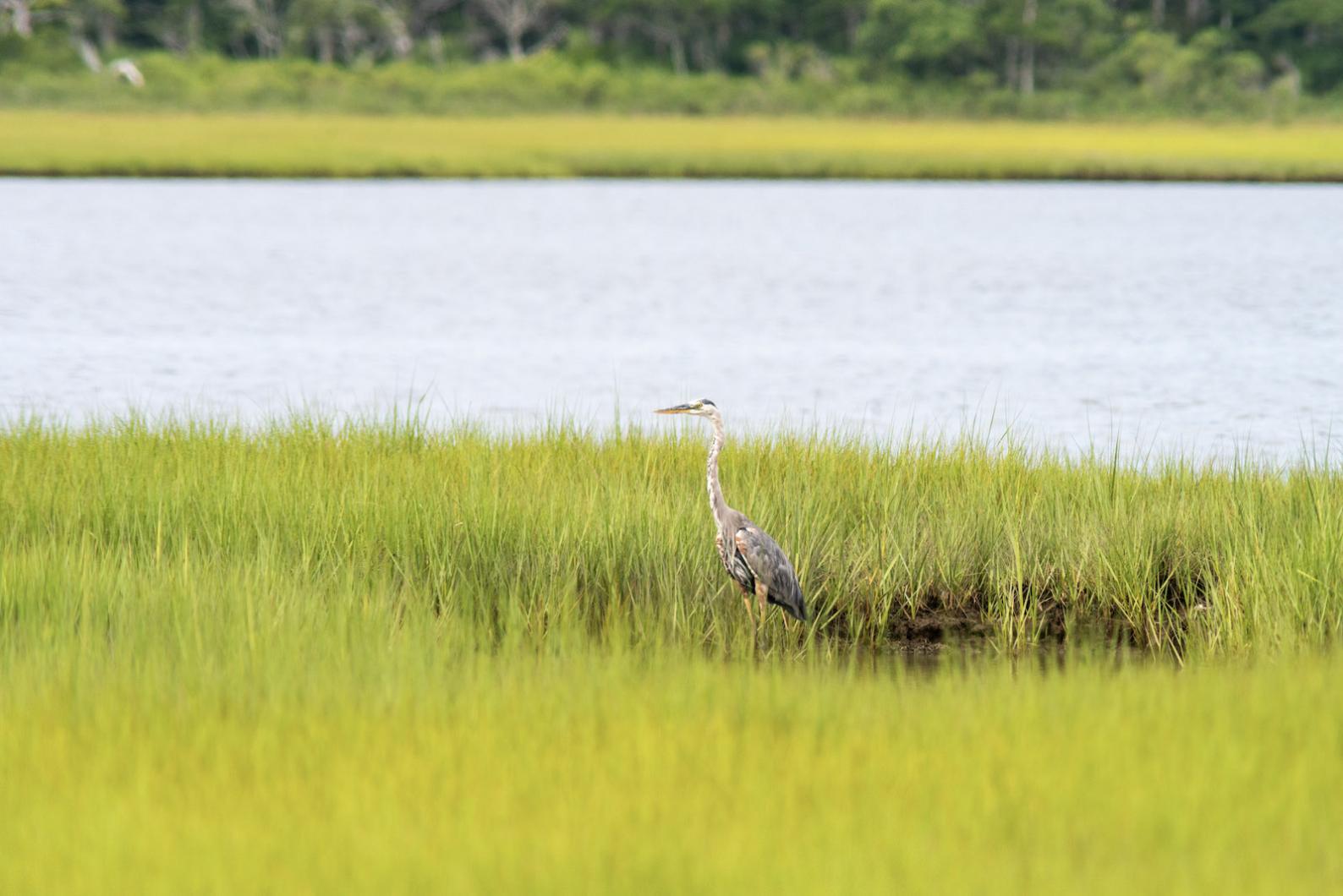The Trustees of Reservations has been awarded a grant from the National Fish and Wildlife Foundation to conduct a restoration feasibility study at a salt marsh on Chappaquiddick.
The grant, which totals more than $380,000, goes toward the land nonprofit’s overarching project with the Nantucket Conservation Foundation and Martha’s Vineyard Land Bank Commission to protect eroding beaches and salt marshes on the Vineyard and Nantucket.
Roughly $155,000 of the funds will be dedicated to surveying a salt marsh around Poucha Pond and the bay side of Cape Pogue Wildlife Refuge on Chappaquiddick, said Cynthia Dittbrenner, Trustees vice president of conservation and resilience.
In the early 1700s, salt marshes in New England were used primarily for agriculture, said Ms. Dittbrenner. To prevent over-saturating their crops, farmers dug deep ditches through the marshes to lower and drain the water. Over time, the remaining ditches have dehydrated and eroded the soil, leaving the marshes exceptionally vulnerable to deterioration and rising sea levels.
“As the tide comes in and out it deposits sediment and organic matter, causing the marshes to normally increase in elevation,” said Ms. Dittbrenner. “This is great since seas are now rising. But the problem is that with these ditches the water table has actually been lowered… and the marsh starts to sink.”
Next summer at Poucha Pond and Cape Pogue, where salt marsh ditches remain intact, Trustees researchers will collect data on the vegetation and tidal flow in the area to determine the best way to restore the biome. Ms. Dittbrenner hopes that by 2026 the organization will be able to actually put its plan into action.
“People may not think [salt marshes] are very important,” said Ms. Dittbrenner. “But actually a very thin marsh can do a lot to protect the land and infrastructure behind it... We just hope that we can show in this project effective ways to protect and build marshes that can be applied to other areas just as vulnerable to rising sea levels.”






Comments
Comment policy »